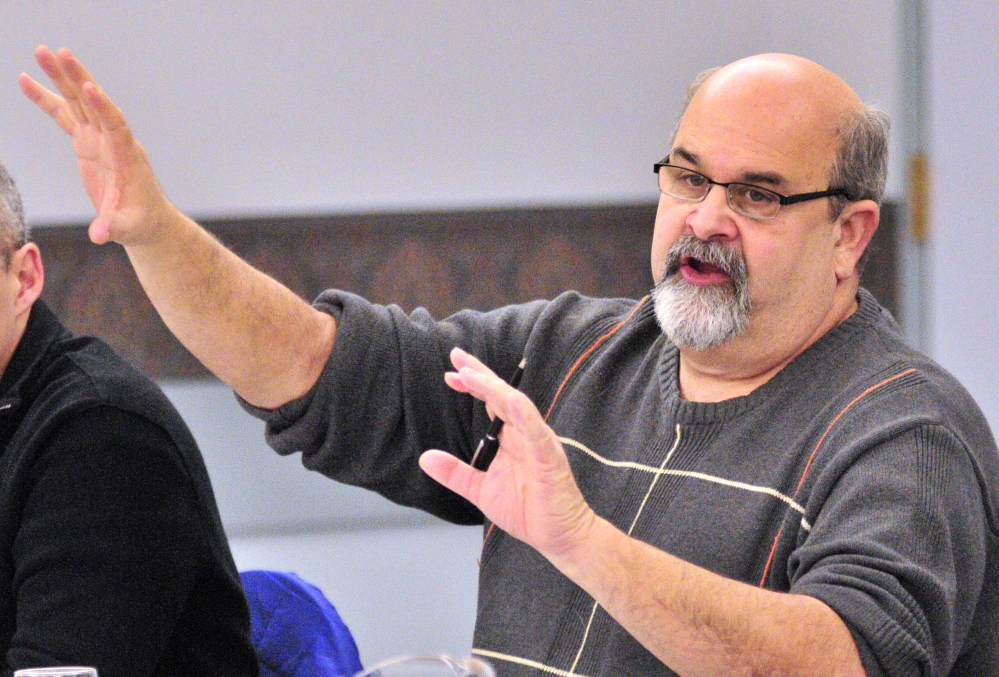AUGUSTA — A new ad hoc committee will tackle the most controversial aspect of several proposed zoning changes and seek to reach consensus on the contentious question of how to define and regulate places of worship and where they may be located.
City councilors approved four of six proposed zoning changes Thursday, tabling action on the other two, more controversial proposals.
The two proposals tabled to allow time for additional debate are new definitions and regulations regarding meal centers and food pantries, including soup kitchens, and religious institutions and places of worship.
Area religious leaders have expressed concerns about the city trying to define religious activities and what constitutes worship, suggesting the new zoning definition and rules could be an infringement on their right to freely practice religion. Of particular concern has been a proposal to limit new “associated uses” which may occur at a church or other place of worship, such as soup kitchens, day care centers, food pantries and clothing drives, to no more than 16 hours per week unless those uses are permitted in the zone in which the place of worship is located.
Local religious leaders, including the Rev. Erik Karas, priest in charge of St. Mark’s Church and pastor of Prince of Peace Lutheran Church, have said feeding the hungry, housing the homeless and providing other services or items like clothing to those in need are parts of how they worship and parts of their primary religious function.
Mayor David Rollins said the ad hoc committee formed Thursday will try to reach consensus on a new place of worship definition and regulations for city zoning rules. He said the committee will include Karas, the Rev. Kristin White from Green Street Methodist Church, Ward 1 City Councilor Linda Conti and At-Large Councilor Marci Alexander. The proposal will be tabled until they have a recommendation.
“It will be tabled until the work is done by the committee,” Rollins said. “They’re going to work together, all parties, the neighborhood, clergy, city, to come up with proper language for this.”
Rollins said councilors will work on changing the proposed new definition and regulations for meal centers and food pantries themselves.
He said downtown merchants have asked that meal centers and food pantries be removed as a conditional use in the downtown area. He said those uses are conditional uses in the current proposal, but councilors will discuss banning new ones from moving in to the downtown zone at their Dec. 8 meeting.
Existing operations would be grandfathered from the new rules. Bread of Life Ministries currently has a soup kitchen, which would likely fit under the definition of a meal center, downtown.
City Manager William Bridgeo said officials may want to consider making meal centers and food pantries an allowed use in some city zones where they are conditional uses now. Conditional uses, generally, undergo a higher level of review and must win Planning Board approval.
Councilors Thursday did vote to approve four zoning ordinance changes recommended by the Planning Board defining and regulating the location of dwelling units, group homes, rooming houses and shelters.
All six of the proposed new definitions were proposed in an effort to clarify city zoning rules after officials and residents expressed concern about the possibility the St. Mark’s Church property, which is for sale, could be sold and turned into a soup kitchen, a homeless shelter or a similar use.
The zoning ordinance changes also were proposed to clarify the definitions of group homes and rooming houses and to address definitions that the city’s Board of Zoning Appeals deemed too vague in overturning a city code enforcement officer’s previous ruling denying an application for a female veterans’ home on Summer Street.
Keith Edwards — 621-5647
Twitter: @kedwardskj
Send questions/comments to the editors.




Comments are no longer available on this story